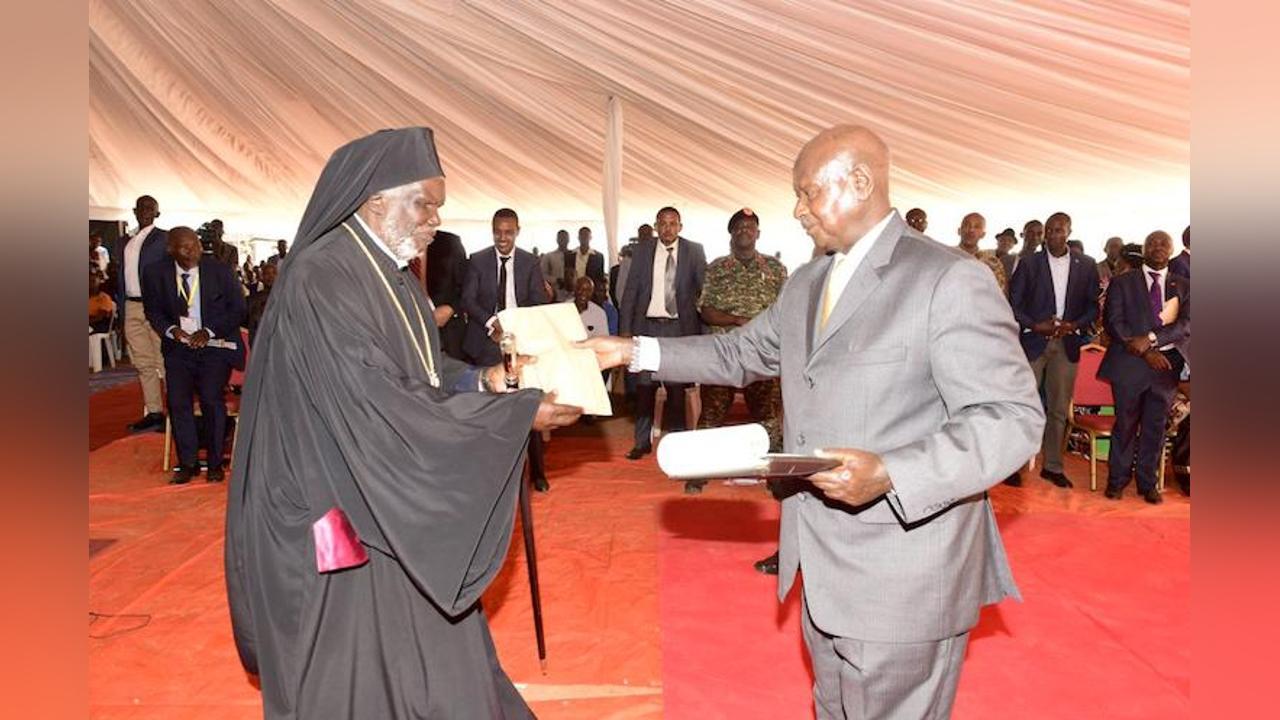Africa-Press – Uganda. President Museveni has defended his well-known practice of giving cash in so-called “brown envelopes,” insisting the gesture should not be equated with voter bribery.
He argued that the practice—rooted in cultural appreciation and recognition—should be distinguished from electoral malpractice, especially in light of opposition criticism linking it to vote-buying.
In a detailed statement issued following the July 17, 2025 National Resistance Movement (NRM) parliamentary primaries, Museveni cited recent law enforcement efforts to clean up internal party elections.
He disclosed that 333 individuals have so far been arrested in connection with voter bribery and electoral fraud, with 48 of them already charged, including 13 NRM district registrars.
“The operation against mistake-makers such as those who bribed voters is continuing,” Museveni stated, emphasizing his government’s commitment to transparent electoral processes.
The President was responding to comments made by Butambala County MP Muwanga Kivumbi during a televised debate, where Kivumbi accused him of promoting a culture of vote-buying by frequently handing out cash in public settings.
Museveni dismissed the accusation, defending the practice known locally as Kurongoora—a traditional form of appreciation for exceptional service or performance.
“I gave Shs5 million to a large group of Bwola dancers in Patongo recently… How can a reward for performance be a bribe?” he asked.
He likened such cultural support to academic scholarships or athletic cash prizes.
“These are not bribes. They are national acknowledgments of excellence and contribution,” Museveni insisted, adding that such gestures are reserved for the Head of State, who has an official budget for public giving.
“Hon. Kivumbi is not President and has no budget for it. He can think of a much more modest figure for Kivuuwa dancers,” Museveni added in a pointed rebuke.
The President further argued that his donations are neither secretive nor self-serving.
“I have no private accounts abroad to hide any money. My giving is public, transparent, and patriotic,” he said, drawing parallels with biblical teachings on generosity.
Museveni acknowledged that Uganda’s political culture has changed since the mid-1990s, but blamed that shift on the post-1996 multiparty system, which he said opened the door to monetized campaigns.
He stressed that both he and the NRM have consistently condemned voter bribery.
He concluded by drawing a distinction between what he called “logistical support for political activities” and outright inducements aimed at swaying votes.
The former, he said, is part of organized political mobilisation, while the latter violates electoral ethics and party principles.
Museveni’s defense of the “brown envelope” culture is likely to stir further debate as Uganda moves deeper into the 2026 election cycle, with opposition leaders vowing to challenge all forms of what they consider state-facilitated patronage.
For More News And Analysis About Uganda Follow Africa-Press






